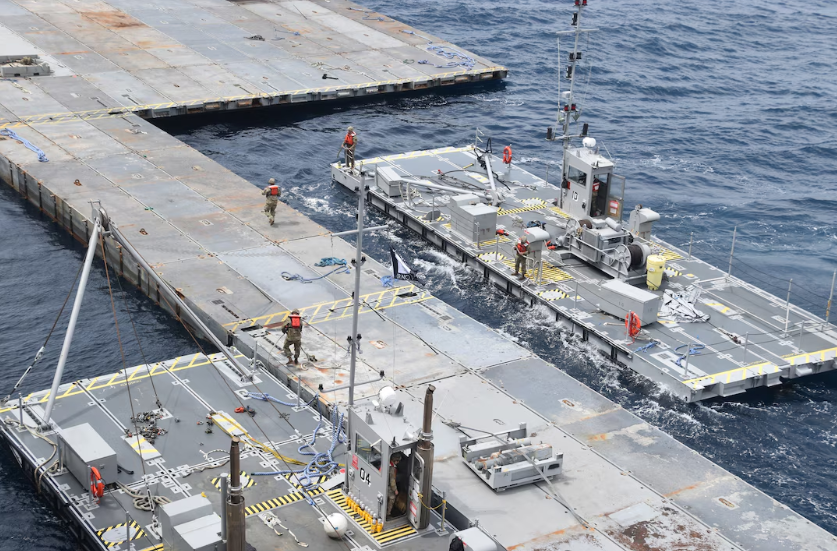
BREAKING UPATE:
As many signs pointed to the beginning of Israel’s invasion of Rafah, Hamas announced today that it has “accepted an Egyptian-Qatari proposal for a cease-fire to halt the seven-month-long war with Israel in Gaza.”
There has been no immediate comment from Israel on the cease-fire proposal.
Original Post:
Note: As this article is posted, there are ominous signs that the “powerful operation in Rafah” may be about to begin.
As the dreaded Israeli full-scale ground invasion of Rafah appears imminent, devastated Northern Gaza has been declared to be “in full blown famine.”
These are the words of Cindy McCain, executive director of the World Food Program, in an interview for Sunday’s “Meet the Press.”
And the “full blown famine” is moving its way south, she adds, to none other than Rafah and surroundings where already more than a million displaced Palestinians have sought refuge after their homeland to the north was turned into a wasteland.
A week ago, United Nations Secretary-General Guterres said, “A military assault on Rafah would be an unbearable escalation, killing thousands more civilians and forcing hundreds of thousands to flee.”
And UNRWA, the United Nations relief agency that helps Palestinians, said such an attack on Rafah would be “devastating” and “would mean more civilian suffering and deaths.”
And indeed, once the invasion starts, hard-hit, famine afflicted Northern Gaza will be the only place these unfortunate, trapped people can flee to.
It is therefore even more critical that the U.S.-led floating dock and pier/causeway construction (“JLOTS”) be completed on time.
While it was expected that this lifeline would be completed this weekend, it may be a few more days before it is operational.
On Friday, U.S. Central Command (CENTCOM) announced that it “temporarily paused offshore assembly of the floating pier in the vicinity of Gaza due to sea state considerations.”
Apparently, high winds and high sea swells caused unsafe conditions for soldiers working on the partially constructed pier. Construction has been moved to the Port of Ashdod, where the work is continuing.
Once fully operational, JLOTS will permit the delivery of up to 2,000,000 meals per day for Gaza’s hungry. However, a devastating attack on Rafah causing another vast displacement of Palestinians will only worsen the humanitarian crisis and require even more massive humanitarian efforts.
In the same “Meet the Press” interview with Kristen Welker, McCain expressed serious concerns about the consequences of such an invasion.
“It doesn’t just complicate it,” she said. “It causes such agony. I’m hoping that better senses prevail here and that this does not happen, for the sake of the people that are stuck there and don’t have enough food and have no place to go…”
The cost of the JLOTS project is now estimated to be “at least $320 million.”
Of course, politicians who do not bat an eye about spending billions for bullets, will criticize spending millions to feed the starving.
Commenting on the rising cost of the JLOTS construction project, Senator Roger Wicker, the top Republican on the Democratic-led Senate Armed Services Committee, told Reuters, “This dangerous effort with marginal benefit will now cost the American taxpayers at least $320 million to operate the pier for only 90 days.”
Liberally paraphrasing Cindy McCain and modifying a famous idiom, “Let’s hope cooler heads, better senses and more compassionate hearts will prevail.”
=====
For additional background on the JLOTS project, please read:
“The Gaza JLOTS Project: A Risky but Indispensable Mission” and
“The US-led Gaza Pier Project Proceeding on Schedule, With Some Wariness.”
#JLOTS #Gaza #Rafah #Gazahumanitariancrisis
















